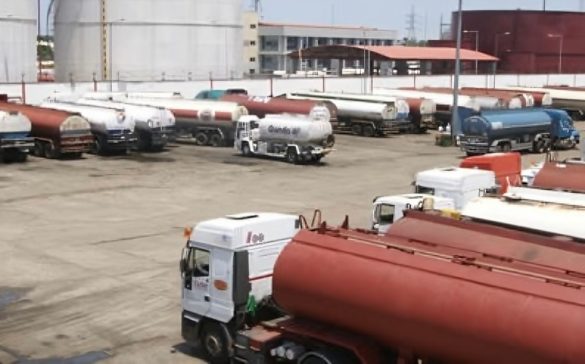KEY POINTS
- Nigeria’s oil workers union PENGASSAN is ending its strike after government-brokered talks with Dangote Petroleum.
- Over 800 dismissed workers will be reassigned within the Dangote Group with no loss of pay.
- The dispute highlighted the refinery’s strategic importance, as prolonged disruption threatened fuel supply across West Africa.
Nigeria’s most powerful oil union has agreed to call off a strike that threatened to upend fuel supply in West Africa, after government officials stepped in to mediate a dispute with Dangote Petroleum Refinery, Africa’s largest crude-processing plant.
The standoff began when Dangote Petroleum dismissed more than 800 workers last week, many of them members of the Petroleum and Natural Gas Senior Staff Association of Nigeria (PENGASSAN). The layoffs triggered a strike that rattled markets and raised concerns about fuel availability in Nigeria and neighboring countries reliant on the refinery’s output.
On Tuesday evening, officials from the federal labour ministry convened a conciliation meeting in Lagos with representatives of both sides. By the close of talks, the government said an agreement had been reached: the dismissed staff would be absorbed into other subsidiaries of the Dangote Group without loss of pay.
Government Signals Support for Workers’ Rights
Labour Minister Simon Lalong, who chaired the meeting, reminded company executives that workers’ right to unionize was guaranteed under Nigerian law. “Unionisation is not a privilege but a right, and it should be respected,” he told participants, according to a ministry statement.
For PENGASSAN, the resolution represents a climbdown but also a vindication. The union had accused Dangote Petroleum of retaliating against staff for organizing, while refinery executives countered that the layoffs were linked to a staff “reorganisation” and claimed some workers had engaged in sabotage.
Still, the prospect of prolonged industrial action at the refinery had alarmed policymakers. The plant, with a nameplate capacity of 650,000 barrels per day, is central to Nigeria’s hopes of ending fuel imports and stabilizing supply in the region. Any disruption risked undermining both trade and government revenue.
The union has now agreed to begin formal steps to suspend its strike. Though fuel supply has not yet been severely disrupted, the episode underscores how labor disputes at the privately owned refinery can ripple far beyond Nigeria’s borders, given its outsized role in regional energy markets.



